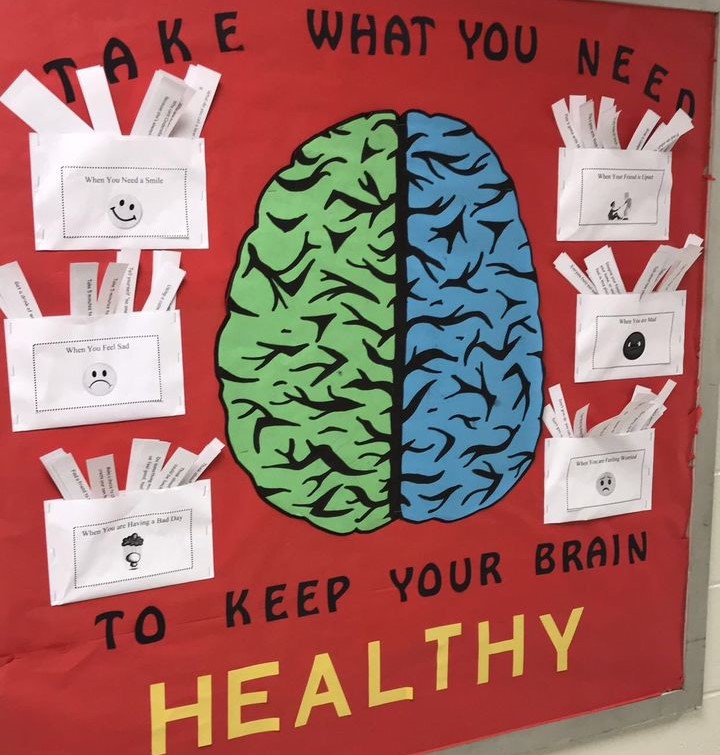Every Single Human being in this world has a body and within that body resides a very important organ that helps us control what we think, our memories, our emotions, touch, motor skills, vision, breathing, temperature, hunger and any other process you can think of that regulates our body.
From an early age we are taught how to take part of every other part of our body apart from our brains. We know that as a part of our physical hygiene we need to brush our teeth daily, take a shower, and carry out some physical exercise.
These are incorporated in what we study, even in the games pupils play at a young age however there is silence around the topic of mental health.
We need to have the much needed conversation about mental health, mental health hygiene or mental illness which are often ignored until there’s a big elephant sited in our sitting room which in this case could be a loved one suffering from mental illness, a loved one that has lost their lives to mental illness as per the WHO statistic that states every 40 seconds someone around the world loses their lives to suicide. An example of this statistic is me.
The first time I heard about mental health was when I was sited across a therapist getting my diagnosis for chronic mental illness that I still fight with till today. Before that I had heard a loved one was fighting with depression, I didn’t care to learn what it was.
I simply thought this person was being dramatic. I did not know the overwhelming sadness I sat with for months was depression, I didn’t know the prolonged worry and fear that something bad was about to happen any minute was anxiety, I didn’t know that the panic attacks, nightmares, nervousness, hopelessness and replaying of the traumatic event/ sexual assault that happened to me when I was 16 was Post Traumatic stress disorder.
I didn’t know my constant need to try and end my life 7 times was a sign for me to get help to stop the suicidal attempts.
I didn’t know because no one talked about such things, the information then was less than it is now. If I knew and had gotten help earlier I wouldn’t be on the side of the spectrum that is chronic. It’s a hard place to be. Because of my journey to getting help I decided to do something about it and advocate for different reforms that would make this place better for the next person that needs help.

I believe such change needs to start by educating people at the grassroots. An educated society is more informed and capable of pushing for reforms. I believe this needs to start from as early as our preschools/ primary and secondary schools.
Children at an early age need to learn what mental health is and how they can take care of it using simple self-care techniques like how they can manage their emotions, how they can relax or use relaxing techniques, what diets are good for their mental health, how they can practice gratitude.
Just like Children are taught when their physical body isn’t functioning right or taught how to take care of it in order to avoid ailments like brushing their teeth daily, they need to learn the symptoms of when their mental health is not functioning well, what the challenges are, how to manage them and how/ when to ask for help.
HOW CAN WE INCORPORATE MENTAL HEALTH EDUCATION INTO SCHOOLS? CONSIDER THE 5 T’S.
- TALKING ABOUT MENTAL HEALTH.
This can be done by asking your students how they feel, how they are coping with what they feel, etc. being able to understand their own mental health also allows them to better understand their emotions and how to regulate them. Increasing emotional intelligence and self-awareness is all part of raising a well-rounded child or teenager.
The CDC estimates that one in six children between the ages of 2-8 has some sort of mental health condition. Similarly, 8.4% of children between the ages of 6 and 17 have had depression or anxiety during their lifetimes. Studies have shown that 50% of all lifetime mental conditions begin by age 14. It’s also estimated that up to 70% of children do not receive help for the mental health conditions they are facing as they grow up.[1]
[1] https://mindfulhealthsolutions.com/why-mental-health-should-be-taught-in-schools/#
All these numbers add up to one thing: children and teens experience issues with mental health, and not talking about it in schools doesn’t prevent them from those experiences.
2. TRAIN TEACHERS AND STAFF ABOUT MENTAL HEALTH.
Most teachers in schools themselves do not know about mental health, you simply cannot help students understand something you have no or minimal information about.
Learning about mental health in school gives teachers the opportunity to not only understand what might be going on with them but also how to support and understand their students and peers.
3. INCORPORATING MENTAL HEALTH INTO TEACHING.
It is essential to teach kids about their feelings. They should learn healthy ways to share their feelings and learn to find safe people to share them with.
Kids also need to learn coping skills. If it’s hard to immediately add it to your curriculum you can offer a range of lunchtime and after school clubs and activities that support well-being such as art club, yoga and mental health clubs.
Schools can include mental health and well-being as a standing agenda item in meetings with staff, the senior leadership team, parents/carers, as well as in any newsletters
The schools can also promote and observe key events on the mental health calendar like Children’s mental health week held in February, World mental health day on 10th October, Suicide prevention day on 10th September , Mental health awareness week in May,
4. PROVIDING HELPFUL TOOLS FOR STUDENTS.
Students need to learn tools that can best support them to take care of their mental health. These can include;
Self-awareness tools e.g. How can one maximize their good days, Mood trackers e.g. are you able to identify what you feel and why you feel that way, what strategies do you have to self-regulate your emotions in response to the range of experiences you are going through?, A daily maintenance plan e.g. note down some of the things you have done daily to improve your well-being.
5.TAKING CARE OF TEACHERS.
One cannot give from an empty cup. It’s important that the teachers themselves are taken care of e.g. If one needs time off to take care of their mental health or are unwell, Human Resource should be able to recognize mental illness as any other illness and give the teachers the much needed attention that they would if it was any other illness.
Schools can also have a counselor or therapist that comes in once a week or is there full time to support both the teachers and students.
Create an environment that is healthy for their mental health e.g. having access to mental health services at an affordable fee. Etc.

